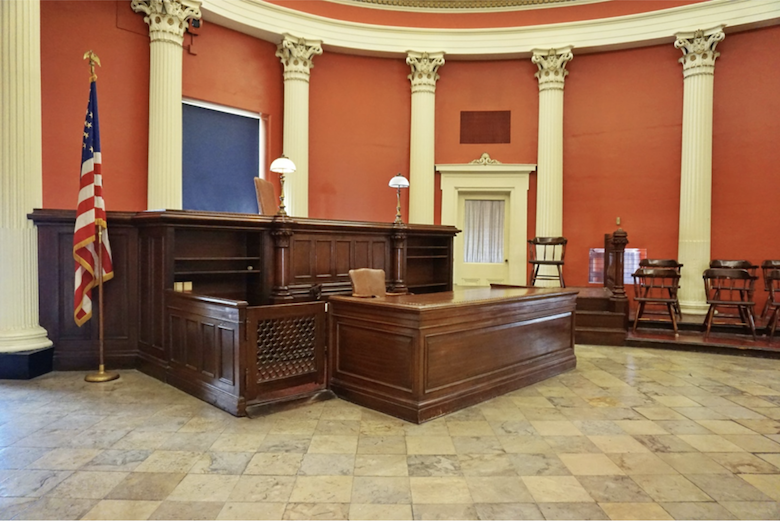
Although the criminal justice system strives to ensure fairness and accuracy when delivering verdicts, mistakes often happen, leading to innocent individuals being wrongfully convicted. In such situations, the appeals process becomes a crucial opportunity to challenge the conviction and pursue justice. By understanding how to navigate the appeals process effectively, you can take proactive measures to challenge their conviction and actively pursue justice.
If you feel that, for some reason, you were wrongfully convicted, an appeal provides an avenue for a higher court to review the decision made by the lower court in your case. This process aims to assess whether any legal errors occurred during the trial.
To rectify the perceived injustice, it is advisable to engage the assistance of an experienced Edmonton criminal lawyer who can guide you through the intricate appeals process. Collaborating with knowledgeable legal professionals increases your chances of success in court when seeking an appeal. Outlined below are common grounds to appeal a criminal conviction:
1. Insufficient evidence
Appealing a criminal conviction often stems from a lack of sufficient evidence. It’s the responsibility of the prosecutor to establish guilt beyond a reasonable doubt. Fortunately, if the evidence presented doesn’t meet the standard requirements, then it can serve as legitimate grounds for initiating an appeal.
Appeals centered around inadequate evidence commonly entail arguing that the prosecution failed to establish a critical element of the crime or that the presented evidence was unreliable or unlawfully obtained. This may encompass issues like flawed forensic evidence, coerced confessions, or untrustworthy witness’ testimonies. In such instances, appellate courts diligently review the trial proceedings to assess whether the evidence was satisfactory in justifying the conviction.
2. Legal errors and misconduct
Challenging a criminal conviction often stems from legal oversights or impropriety during the trial process. Safeguarding the integrity of the criminal justice system requires an unwavering commitment to proper legal protocols, guaranteeing a fair trial. Any mistakes or misconduct during the trial can significantly influence the ultimate judgment, prompting the necessity of seeking redress through an appeal.
Legal errors can encompass incorrect jury instructions, mishandling of evidence, or violations of constitutional rights. Prosecutorial misconduct, like intentionally withholding favorable evidence and making improper statements to the jury, can also serve as valid grounds for an appeal. Appellate courts diligently assess these assertions to determine if the errors or misconduct had a prejudicial impact on the trial’s outcome.
3. Ineffective assistance of counsel
Receiving competent legal counsel is a fundamental human right that is enshrined at the core of the criminal justice system. If you feel that your attorney failed to adequately fulfill their obligations, you’ve got grounds for initiating an appeal process.
To assert ineffective assistance of counsel claim, a defendant must demonstrate that their attorney’s performance fell below the accepted standard of reasonably competent representation and that this deficiency had an adverse effect on the trial’s outcome. Examples of such deficiencies may encompass attorney incompetence, failure to adequately investigate vital evidence or conflicts of interest. Appellate courts meticulously scrutinize these claims to assess whether the defendant’s right to effective counsel was infringed upon.
4. New evidence or changed circumstances
Occasionally, subsequent to a conviction, fresh evidence comes to light that was unavailable during the trial. You have the option to seek an appeal on the basis of newly unearthed evidence. However, such evidence must be substantial and hold weight that’s sufficient to potentially alter the outcome of the trial if it had been unearthed during the initial legal proceedings.
Great examples comprise DNA test results, witness recantations, or the unearthing of previously undisclosed witnesses or information. Additionally, changes in circumstances like the introduction of a new law or legal precedent directly impacting the case can also act as grounds for an appeal.
5. Violation of constitutional rights
The criminal justice system is designed such that to ensure that your constitutional rights are upheld throughout the legal proceedings. You should appeal your conviction if your constitutional rights were in any way infringed upon during the investigation or trial procedure. For instance, if law enforcement obtained evidence through a coerced confession violating your Miranda rights, you have a solid basis for appealing your conviction. If the jury selection process excludes a particular group, violating your right to an impartial jury, it can serve as a compelling ground for appeal.
Endnote
The appeal process is a vital protection within the criminal justice system, enabling you to contest wrongful convictions and correct instances of injustice. Various grounds exist for appealing a criminal conviction, including inadequate evidence, legal errors and misconduct, ineffective counsel, and the discovery of new evidence or changed circumstances. Consider seeking the guidance of a knowledgeable appellate attorney to help you navigate the intricate aspects of the appeals process and guarantee the pursuit of justice.


